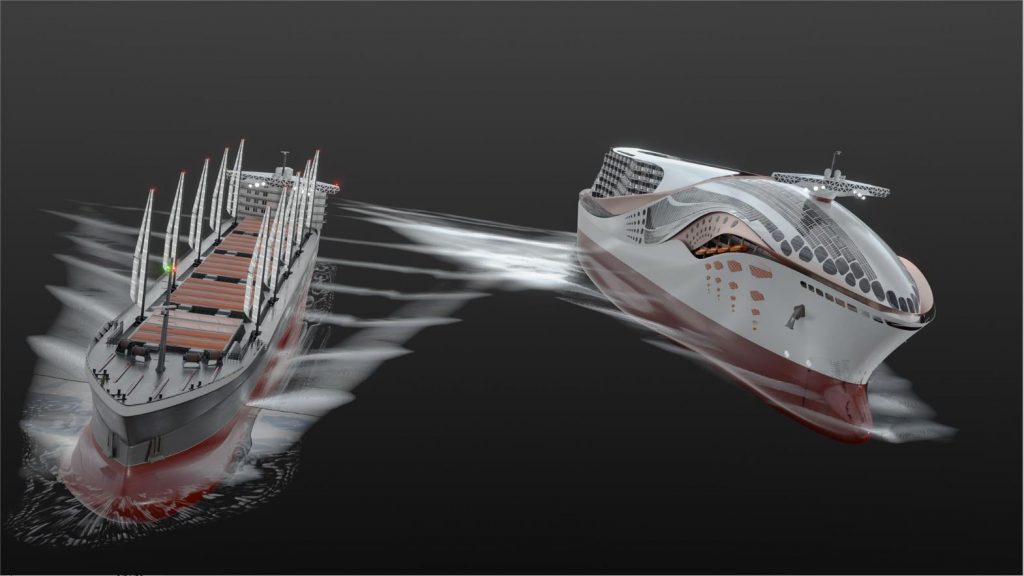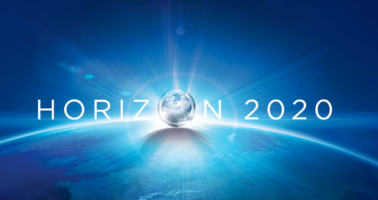January 26, 2021
The objective of the CHEK project (deCarbonising sHipping by Enabling Key technology), is to reduce emissions from maritime transport through the integrated use of forms of energy and low-carbon technologies. These include the use of hydrogen fuel, wind power, electric batteries, heat recovery, air lubrication, and new antifouling technology. Development work on how to design and operate ships is also included.
A consortium led by the University of Vaasa (Finland) participates in the project, and Wärtsilä, BAR Technologies, Cargill Ocean Transportation, Climeon, Deltamarin, Hasytec Electronics, Lloyds Register, MSC Cruises, Silverstream Technologies and the World Maritime University participate.
The EU has awarded CHEK € 10 million in funding under its Horizon 2020 research and innovation program to design two concept ships: a bulk carrier that will use sails to capture wind energy and a cruise ship that will run on a Wärtsilä-designed engine. it will run on hydrogen fuel.

It is estimated that by combining new and innovative technologies, greenhouse gas emissions can be reduced by 99%, up to 50% of energy saved, and black carbon emissions reduced by more than 95%.
"CHEK represents another important step in Wärtsilä's commitment and efforts to decarbonize maritime operations. There is no silver bullet to meet the challenge of fighting climate change, but rather a series of parallel pathways must be exploited, and "That's exactly what we're doing here together with our partners. What makes the project so exciting is that we're expanding what can be done."
Jonas Åkerman, Director of Research and Technology Development at Wärtsilä
Wärtsilä maintains that the project fits in with its already extensive investments in developing a co-creation ecosystem. The company's Smart Technology Hub in Vaasa is a new cutting-edge innovation center that drives research, development and production to create solutions for a more sustainable world. This initiative is complemented by the Wärtsilä Smart Partner Campus platform, where interested parties are invited to participate in the co-creation of win-win solutions. And, in addition to developing and testing the hydrogen engine, Wärtsilä's contributions to the project will include the following:
- Systems integration for both vessels, including hybridization.
- Energy storage and connections to the electrical grid on land
- The development of a flexible and modular powertrain to reduce fuel consumption and achieve optimum efficiency.
- The implementation of the novel gate rudder system to improve maneuverability and efficiency.
- Route optimization for the wind-assisted bulker to take advantage of prevailing and anticipated wind conditions.
The Finnish company says it has unrivaled experience in developing marine engine technology and delivery systems for a wide range of fuels, including LNG, LPG and volatile organic compounds. It states that it has already made great progress in researching future "clean" fuels capable of truly contributing to the decarbonization of maritime operations, and continues to invest in research into fuels such as biological and synthetic LNG, ammonia, methanol and biodiesel. , as well as hydrogen.
The two project vessels will also feature Silverstream Technologies' air-lubricated stems, with CEO Noah Silberschmidt commenting: "Bold, progressive vessel designs that combine the most effective clean technologies with the cleanest fuels of the future are an obvious and necessary next step for a sector that needs to address decarbonization today."
The project will also undertake the preparation of future scenarios and an analysis of the factors affecting the development potential of low-carbon shipping, such as current infrastructure.
The CHEK project is scheduled to start in spring 2021. With the new ship design method, the results of the two test ships can also be applied to other types of ships, such as oil tankers, container ships, general cargo ships and ferries. . The project will also carry out the preparation of future scenarios and an analysis of the factors affecting the development potential of low-carbon shipping.

